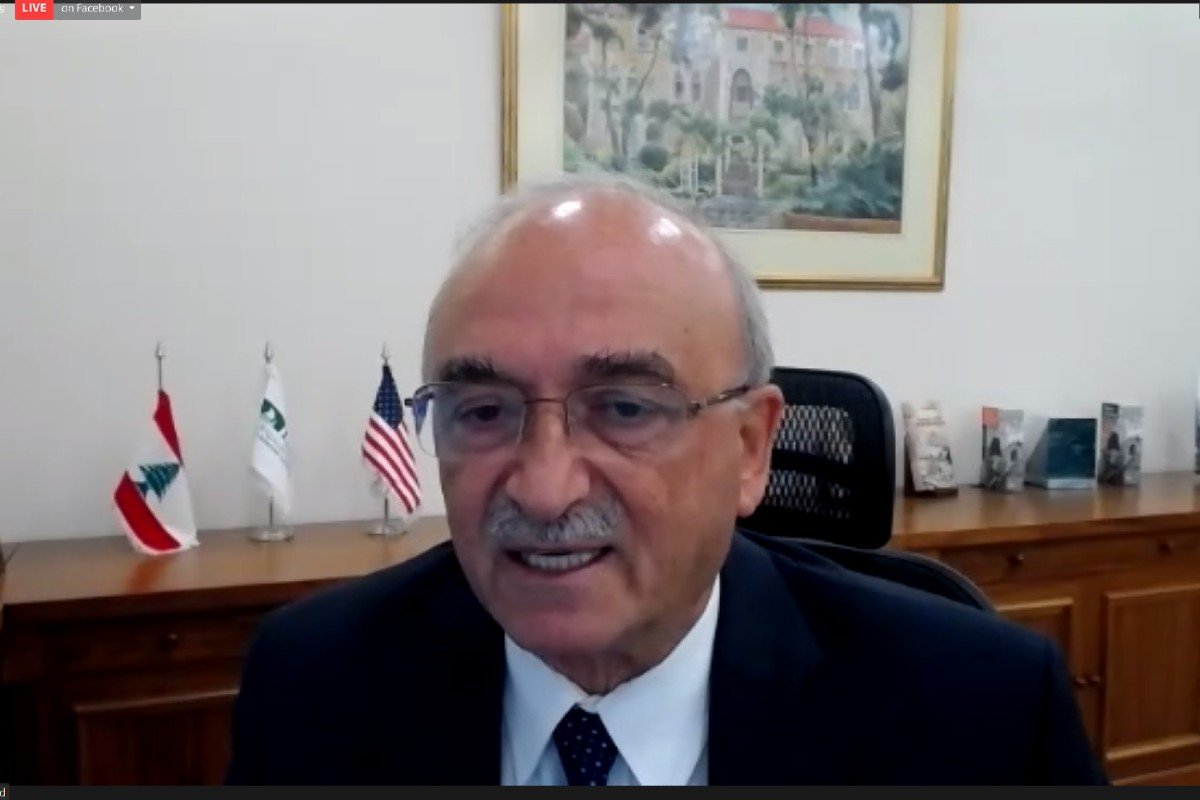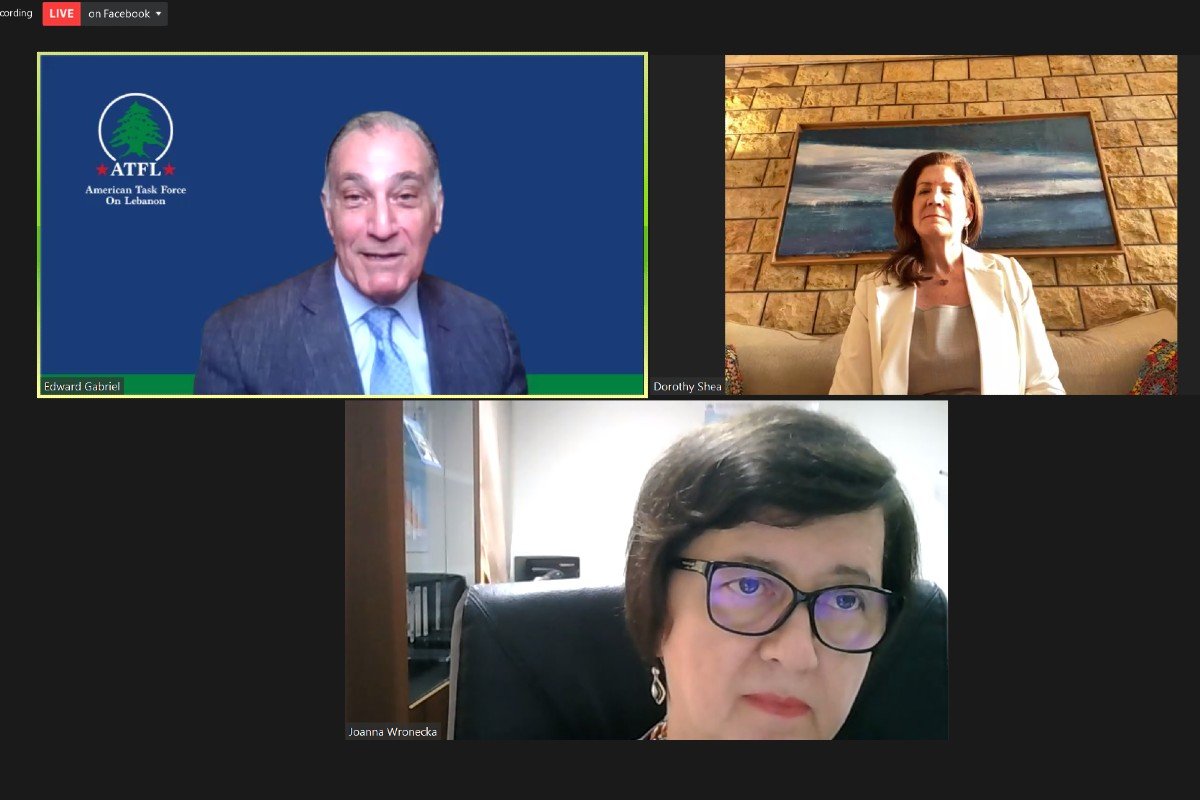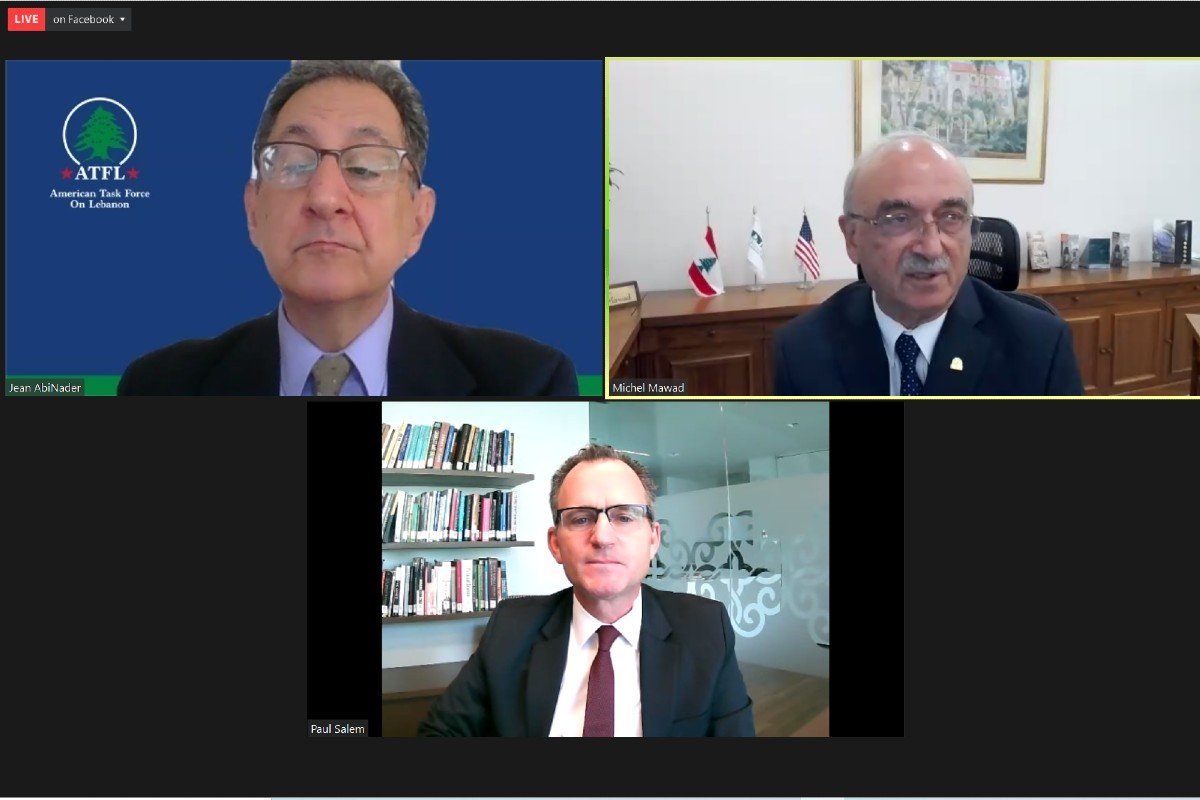LAU President Mawad: The Western World Must Act to Avoid a New Iron Curtain Falling on Lebanon
Speaking at a webinar hosted by the American Task Force on Lebanon, LAU President Michel E. Mawad expounds on the priorities for Lebanon’s recovery.
To mark the one-year anniversary of the August 4 Beirut Port explosion, the American Task Force on Lebanon (ATFL) invited LAU President Michel E. Mawad to speak in a virtual webinar held on August 5, alongside US Ambassador to Lebanon Dorothy C. Shea, UN Special Coordinator for Lebanon Joanna Wronecka, and President of the Middle East Institute Paul Salem.
The webinar was divided into two sections, the first moderated by ATFL President, former Ambassador Edward Gabriel, who also serves on the LAU Board of Trustees, and the second by Chair of the ATFL Communications Committee Jean AbiNader.
The discussions revolved around the threat of the rapidly declining socio-economic conditions on Lebanese society, including the brain drain and social services; the role of the international community in bringing pressure to bear on economic and political reforms; the status of US-Lebanon relations and challenges to building relations with a potential new government; and lessons from post-conflict stabilization strategies in developing survival options for Lebanon as a sovereign state.
In a panel with Dr. Salem, Dr. Mawad focused his discussion on the most urgent needs that the government has to address, namely ensuring access to healthcare for the general population, helping the educational system at both the school and university levels, and providing a safety net not only for families but specifically for children, the most vulnerable of the population, “30 percent of whom are going to bed hungry.”
Dr. Mawad stressed that “of all the problems we are facing as an institution and in the country, the one perhaps with the serious impact now and over the long run is the brain drain that we are witnessing.”
The relocation outside the country of more than 15 to about 20 percent of LAU’s physicians – most of whom American-trained and in senior positions as heads of departments or chiefs of sections – has dealt “a major blow to our teaching and patient care,” he said. Rebuilding this talent pool will not only be expensive but will take a long to materialize.
The crises that LAU is experiencing, however, represent a microcosm of the “general agony” the country is going through, added Dr. Mawad. Countrywide, well over 2,000 physicians and a multiple number of other professionals among whom nurses, engineers, teachers, IT specialists and businessmen, have left or are thinking of leaving.
With the surge of new COVID-19 variants, shortage of physicians and nurses and the imminent lifting of government subsidies for medicines and medical supplies, the healthcare system is on the verge of collapse, he warned.
As hospitals face untold challenges with lack of diesel fuel and skyrocketing prices, forcing them to raise their fees, “healthcare is fast becoming the medicine of the rich,” compelling those who cannot afford it to rely on “a public health service that is inadequate and bankrupt.”
Equally threatened is the educational system, including the high-school and higher education systems. Dr. Mawad reiterated that students and their parents are struggling with economic hardship. Even though LAU has raised its financial aid to more than $80 million a year, the university and higher education in general are in desperate need of a support system to be established by the government.
In his commentary on the extensive damage that the past year has done to the fabric of Lebanese society, leaving it in “a chronic state of spiraling decay,” Dr. Mawad drew a similarity with the Iron Curtain that divided Europe after World War II.
He made a passionate appeal to help Lebanon in the three priority areas of healthcare, higher education and economic decline, urging the international community, “not to let the iron curtain fall on Lebanon and trap its people in a world of endless darkness and despair.”
In addition to the top priorities mentioned by Dr. Mawad, Dr. Salem underlined the importance of a new government working with the IMF to put in place economic reform and a rebuilding strategy, and to restore confidence in the Lebanese economy.
Furthermore, he said, and as the political/social contract between the government and the people has been broken, it is critical that not only the parliamentary elections, but also the municipal and presidential elections go ahead in 2022.
In another session moderated by Ambassador Gabriel, Ambassador Shea and Wronecka reaffirmed the support of the US government and the UN respectively to help Lebanon out of the impasse.
Ambassador Shea outlined a contingency plan, “to forestall any number of variations of what a worst-case scenario might look like in Lebanon,” as the political and economic crises unfold.
Key components of this plan are to provide humanitarian aid to the Lebanese people, find new creative ways to mitigate the brain drain, and have a coordinated diplomatic strategy toward the formation of an empowered government – all of which demand collective work and “coordination with like-minded countries and organizations in communities,” among which the ATFL.
Noting that there have been 26 UN agencies providing assistance in Lebanon since 2006, Wronecka reiterated the common view among the speakers that “international assistance cannot replace the responsibility of the politicians to do the work.”
Of the many UN agencies on the ground, she cited the UN Refugee Agency’s support of refugees, and the UNDP’s efforts to help strengthen and sustain the Lebanese army. The UN, she added, is now launching a 12-month emergency rescue plan.
In his final remarks, AbiNader summarized ATFL’s efforts to bring much-needed medical relief to Lebanon, working with trustworthy partners such as LAU and its medical centers, and highlighted the need for additional donations, namely to ensure the shipping of 150 containers of medical supplies ready for Lebanon.
You can view a recording of the discussion here.


